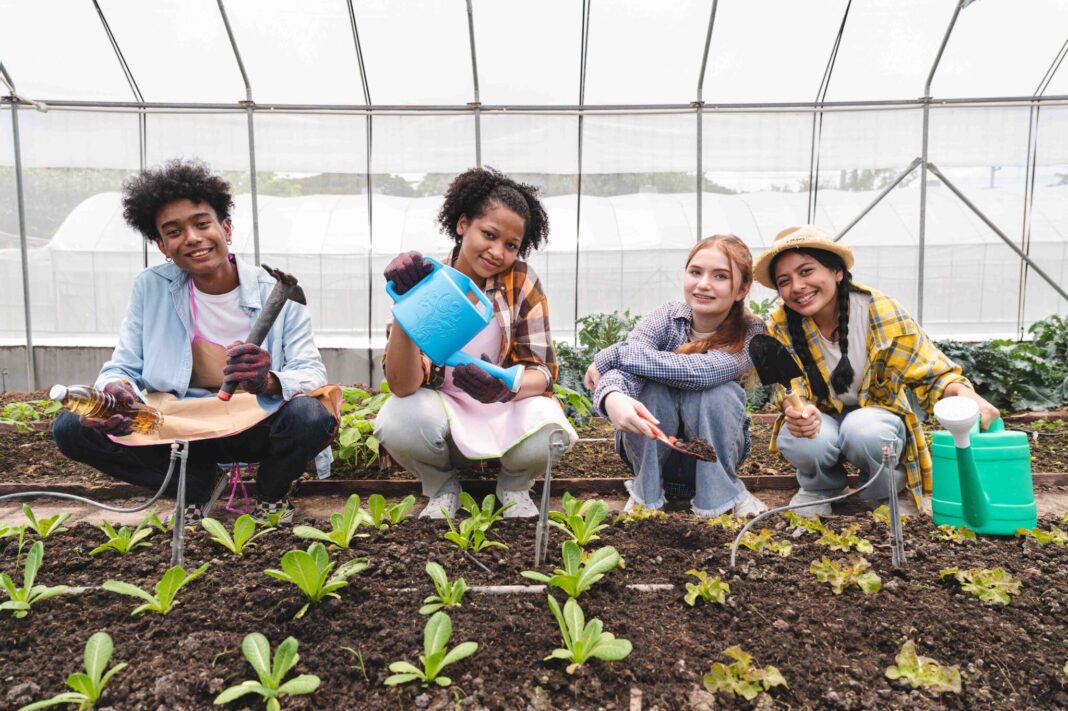Young farmers are key to future food security
Despite not traditionally being considered a “cool” profession, an increasing number of South Africa’s youth are becoming farmers, and many are not only surviving but thriving in this crucial economic sector.
Statistics South Africa recently revealed that youth (people aged between 15 and 34) make up more than a third of the South African population. Yet unemployment among this age group is as high as 40-50%. Among the sampled rural households, 51.5% are unemployed but actively seeking employment, while only about 10% are self-employed.
At the same time, Statistics South Africa also reflects that agriculture was among the few sectors showing employment gains last year, amid South Africa’s overall employment continuing to fall. Employment in agriculture grew by 27 000 (3.2%) in the first quarter of 2023, reaching 888 000.
Despite not being a sector that young professionals are typically drawn to, it is encouraging to see a growing number of young black entrepreneurs becoming actively involved in the agricultural sector. Not only is agriculture key to providing employment, but it is also critical to ensuring South Africa’s food security. As Land Bank we are proud that for FY24 our disbursement to youth accounted for almost 11% of our loan book, which is a figure we are working towards increasing in this current FY.
However, despite an increasing number of youth showing an interest in becoming farmers, AgriSA puts the average age for a farmer in South Africa at about 57. This is in line with worldwide trends as most young professionals would rather work in cities and have corporate jobs.
While it is encouraging to see that young entrepreneurs are being drawn to farming, it remains crucial to attract more young people to this industry, especially in a country such as South Africa that has a growing population and needs to ensure food security for future generations.
Despite more young people showing an interest in farming in recent years, entry into the sector remains difficult for aspiring young farmers. A lack of land ownership, high input costs, access to credit, lack of market access, low returns, high cost of mechanisation and a lack of farming knowledge are some of the main barriers that hinder youth participation in agricultural activities.
Better land availability, financial support and the dissemination of information about rural development programmes are the main interventions that can improve youth participation in the agricultural sector.
In line with this, Land Bank’s Blended Financial Scheme (BFS) is a blended finance programme, established in partnership with the Department of Agriculture, Land Reform and Rural Development (DALRRD), to commercialise development farmers. The objective is to facilitate the meaningful participation of black producers and majority black-owned enterprises owning and controlling the agricultural value chains in South Africa.
The BFS is a 50% grant and 50% loan that is designed to support producers engaged in value chain and aggregation activities. It aims to assist farming projects achieve sustainability and growth with priority given to projects with high development impact.
Financial stability remains an important aspect of farming and key to encouraging more young entrepreneurs to enter the agricultural industry. Mechanisms such as the BFS are therefore extremely important to lowering the barriers of entry for aspiring professionals who would otherwise not be able to make it in this sector.
Over and above financial support, access is provided to a post-investment management services team that continues to support BFS beneficiaries in a variety of ways – from crop inspection to helping source leased equipment.
This support has seen many emerging farmers reach their dreams of becoming successful agripreneurs and active contributors to employment within their communities. Young black farmers are thriving not just in one area, but in every province of South Africa and across all categories of farming, including cattle, poultry, mixed and crop farming. We will continue to actively support these young professionals and to encourage new entrants into this sector.
We wholeheartedly believe that supporting South Africa’s young agripreneurs will not only improve the succession prospects in the crucially important agricultural sector but will also act as a motivator to persuade more young professionals to come on board.



